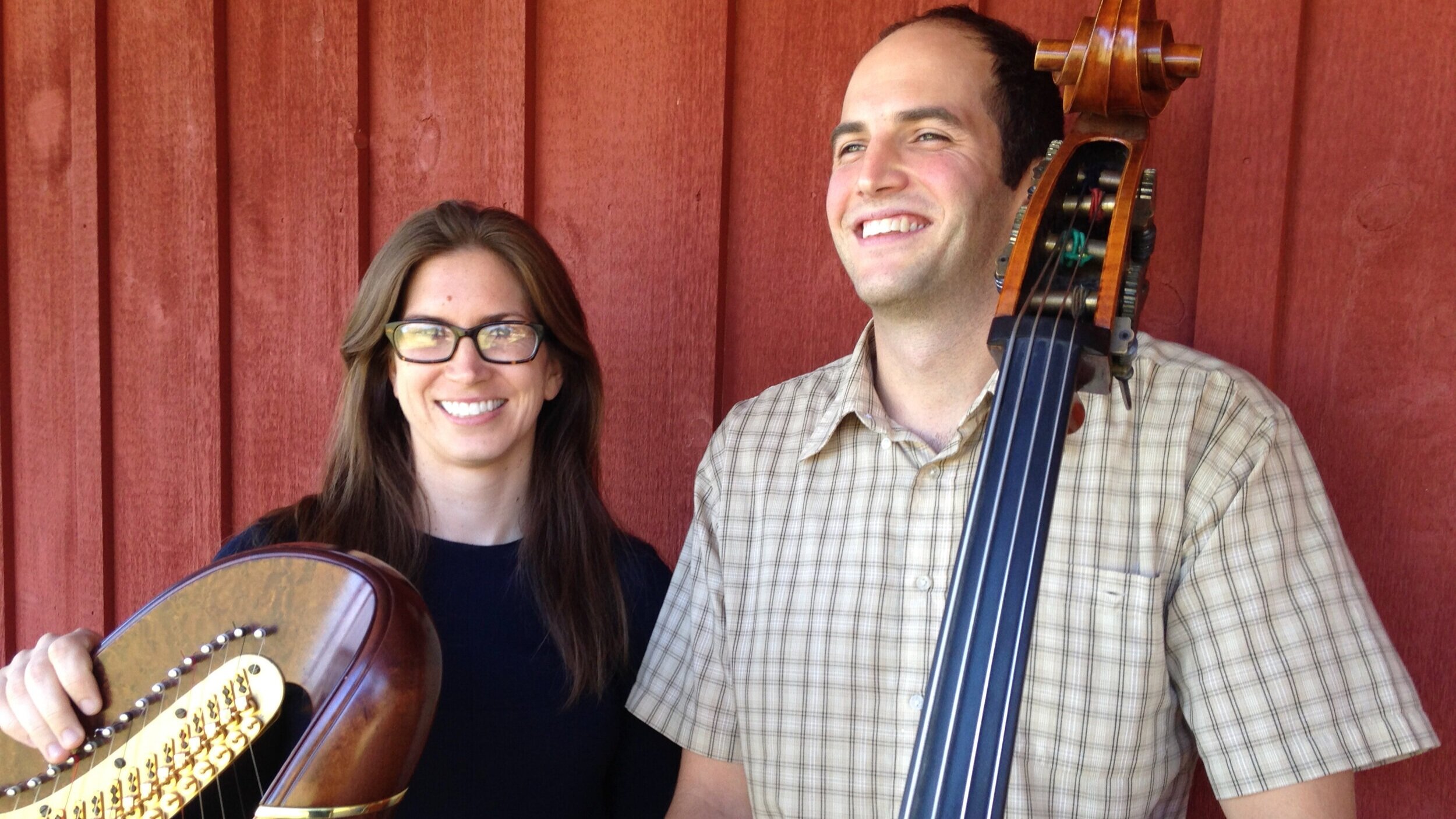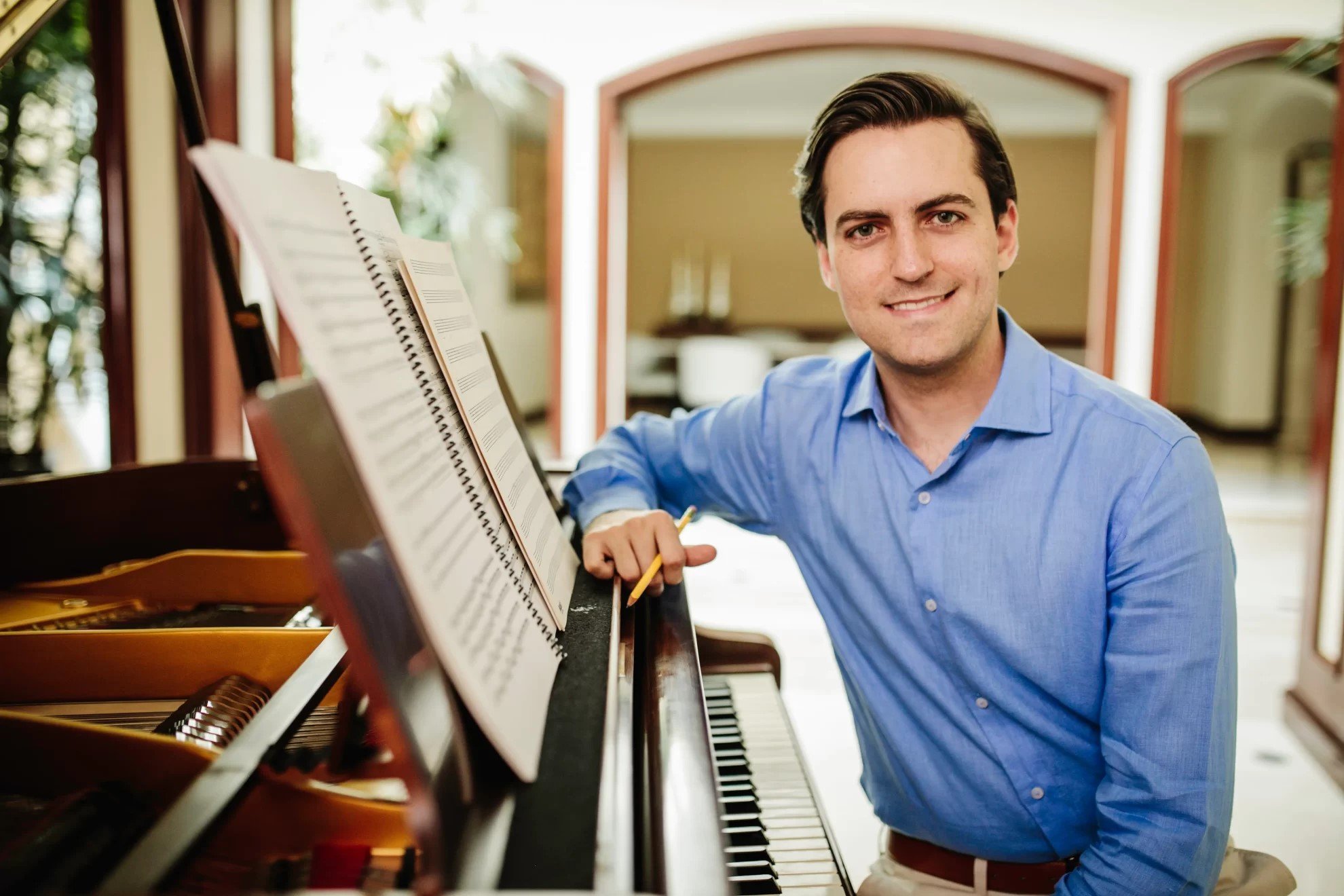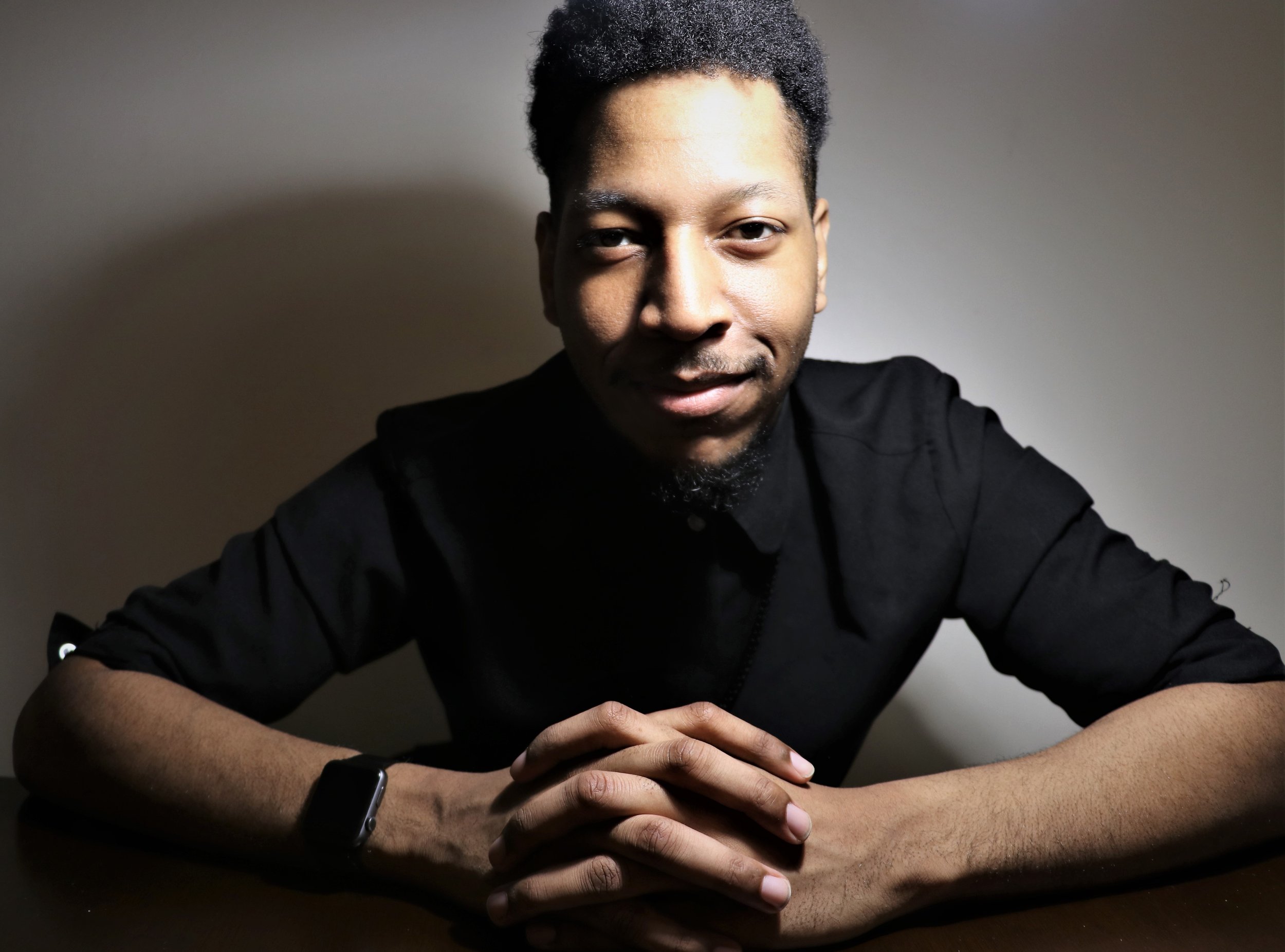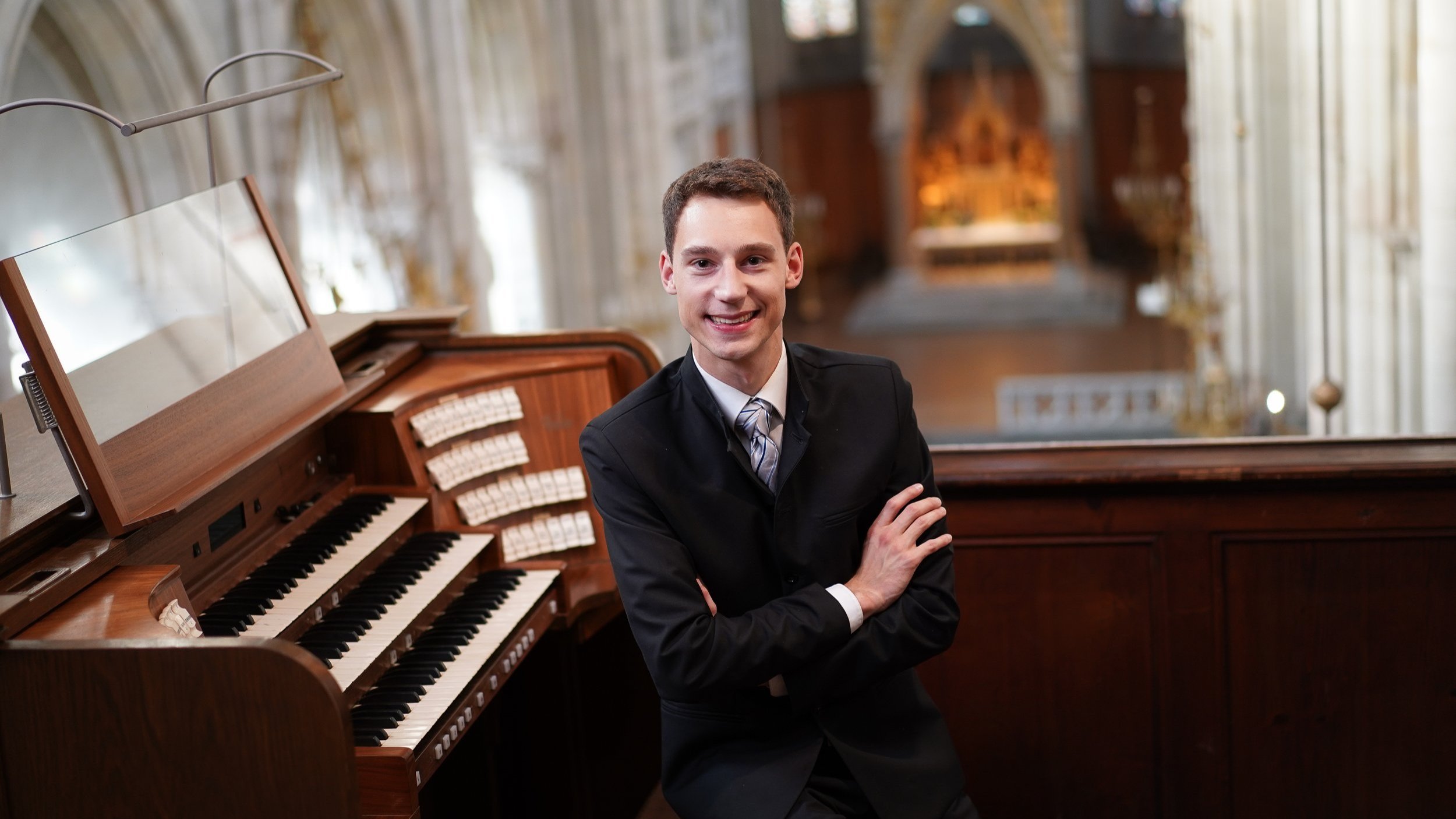Philip Alejo and Claire Happel Ashe Form the Ensemble River Town Duo
Claire Happel Ashe and Philip Alejo
Mr. Alejo and Ms. Happel Ashe form the ensemble River Town Duo.
Like many classical chamber music groups, we have performed at just about every venue imaginable: concert halls, retirement centers, libraries, an art gallery, even on the porch of a Victorian cottage. What may be more novel, however, is our ensemble pairing. We are, after all, a harp and bass duo. It is a combination that few concert goers hear frequently, if at all. We program music that is drawn almost exclusively from the 20th and 21st century. Mozart did not write for us, neither did Beethoven. Few have. If we want to perform together as River Town Duo, then we must seek out repertoire written much more recently and find composers who are willing to write for us.
Attending one of our concerts could easily become a fraught experience for audiences, especially for those whose experience with classical music–or new music–is more limited. Will they be turned off by the sometimes esoteric sounds and adventurous harmonic languages of new music?
This has not been our experience. A recent visit to a memory care center in Arizona humbled us. As we tuned our instruments in a common area, relatives assisted their loved ones to seats near the impromptu stage. The faces of many residents showed no signs of emotion; indeed, many appeared to be in a catatonic state. Once the first waves of sounds emerged from the harp and bass, these same residents, deeply affected by disease, were roused into humming along and moving their arms in time with the music. The performance of our newly composed repertoire did not provoke distress, but a sense of peace for the audience.
Another performance at a food kitchen in New Hampshire was equally meaningful. We played off to the side in a dining hall as members of the community sat down for a meal. Some folks kept to themselves, while others grinned broadly. What truly caught us off guard was being joined in performance by a gentleman who kept a flute among his many belongings. He assembled his instrument and began to play lovely counterpoint during our performance of a new commission that we had been workshopping that very week. The composer, Evan Premo, sat feet away during the performance, now a trio, delight spreading across his face.
There has not been a single concert we’ve presented where at least some audience members did not express surprise, delight even, at the sound of our instruments together. We enjoy exceeding the expectations of unassuming audiences. So what is it about these performances that connects with audiences?
Maybe it is the unique sound of the harp and bass? With the enchanting transparency of the harp providing harmonic and rhythmic support, the bass is never overpowered and is free to explore soloistic capabilities unknown to many audiences. The inherent contrast between the instruments–one plucked, one bowed–provides a compatibility of both percussiveness and sustain. Interesting artistic possibilities arise from switching those roles, too. When composers explore how the timbre of our instruments aligns or departs, there is potential for a huge palette of color to draw in the audience.
Or perhaps it is because we play huge instruments? Many audiences envision the grandiosity of the gilded harp or the massiveness of the bass. Others may relate our instruments to their orchestral roles–the harp as ornamental and the bass as foundational. Unlike the other instruments of the string family, it is far less likely that audiences have heard the harp and bass in intimate settings. Not only is it striking to hear the harp and bass together, it is also impressive to simply see these large instruments up close.
While the size and sound of our instruments certainly do attract attention, these qualities alone do not make our duo compelling. There is something more that is not overtly recognizable to audience members: a common history. It is impossible to extract our shared life experiences from our performances. It is what brings cohesion and purpose to our efforts.
We met during graduate studies at the Yale School of Music, where the bass and harp studio happily shared the basement of Leigh Hall. In learning more about one another, we discovered that we both grew up in nearby Mississippi River towns in the Midwest; in fact, our parents had even gone to college together. We found ourselves living in Chicago after graduation and decided to form River Town Duo. Although we have spent the last nine years playing in our ensemble, today we are still discovering what we have in common.
We share a stellar public school music education. We both participated in orchestra, choir, jazz band, marching band, show choir, and musicals, all while pursuing dedicated studies on our primary instruments. We learned music alongside classmates from all types of backgrounds. Music making was at the heart of our social experience. Our hometowns, though distant from metropolises with gleaming recital halls, are still alive with music. Their respective colleges, symphony orchestras, opera companies, theaters, and chamber music series are deeply embedded in the communities and defined our musical trajectories.
Creating community through music continues to be central to our musical identity as a duo. One of our most personal projects to date has been to commission six new pieces for harp and bass. The wonderful composers that we chose to collaborate with were well known to either Claire (Hannah Lash) or Philip (Derick Evans and Evan Premo) or both of us (Caroline Shaw, Whitney Ashe, and Stephen Andrew Taylor). Because of our previous relationships with each composer, we trusted their creativity and were excited to engage with them.
We are thrilled by what we have been offered. The result is a collection of deeply personal pieces that we feel proud to share, both in concert and recording. So yes, we do want our audience to enjoy what makes our ensemble unique, but we also want them to be part of our community. Could it be that this is what allows us to best connect with an audience?
Mr. Alejo and Ms. Happel Ashe form the ensemble River Town Duo, and their debut album, For Claire & Philip, will be released on Furious Artisans in January 2021.











